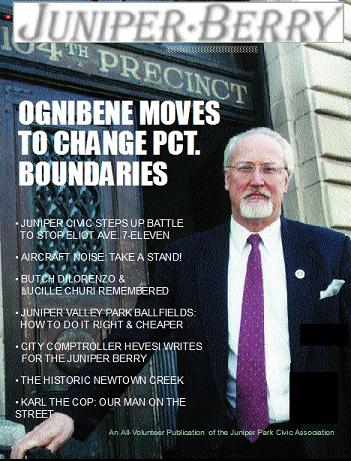MILLIE EXPERIENCES LONELINESS IN HER NEW SURROUNDINGS
My friend Millie was almost 70 years old when she and her son Miron moved to Middle Village from Greenpoint in Brooklyn. To an outside observer, it would seem that the purchase of a new home in a beautiful location would be an overwhelmingly happy event for most individuals, but for Millie it was cause for increased anxiety and stress. For her it entailed major alterations in life style, mobility, interpersonal relationship, and access to church, stores, banks, medical care, and other significant people in her life. Moving to a new location is considered to be a major life event, and as such may be the cause of isolation and loneliness for many people.
Loneliness is being recognized as a common behavioral condition frequently experienced by people as they get older. Dr. Tony Lake, who wrote an interesting book entitled “Loneliness,” believes that it is important that we focus on ways, not only to cope with loneliness, but also to cure it. Lake stated (p.70) that “loneliness is a behavioral condition which is essentially due to an inability to communicate with other people, either as a result of lack of opportunity or because the individual does not have the necessary skills.”
As Millie settled into her new environment, I visited her at more frequent intervals during that first year after the move. I began to notice that she was becoming more nervous and stressed when she was home alone. Her blood pressure began to fluctuate and frequently hovered around 150/90, which is considered the upper limits of normal. She complained frequently about having a “nervous stomach,” and she was preoccupied with finding over-the-counter and/or home remedies to bring her relief. When she lived in Brooklyn, she was up and out of her railroad apartment at “the crack of dawn,” and was busy about many things. In her new surroundings, she rarely left the house and was more inclined to fall asleep during the day rather than go for a walk in the park or even around the block. Because of a lack of regular exercise, her muscles became weaker and she complained more about an increasing arthritic pain. She found some relief from the pain by taking an enteric coated aspirin, which was more gentle on the lining of her stomach, and by applying various salves, such as Aspercreme and Mineral Ice. I also noticed that her usual ready smile began to wane and her demeanor became more severe and depressed. Her facility with expressing herself in English also seemed to be diminishing. As her physical complaints increased, she became increasingly anxious to find doctors, who could prescribe remedies to afford her some relief. But she invariably encountered a problem with transportation to and from the doctors’ offices, because now she did not have ready access to the subway.
Initially, she was not happy with being dependent on others, and how it interfered with her freedom of movement. But within a few months, she developed a network of friends and relatives who made themselves available for transportation. Since she made appointments with several doctors, sometimes for the same conditions, there was always a concern that prescription medicines not be duplicated. I encouraged her to have her prescriptions filled by only one pharmacy, where an accurate and up-to-date record of her medicines would be maintained. Also, any adverse interactions between the medicines she was taking could be detected immediately by a pharmacist who was familiar with her medicine regimen.
Recognizing that some of the symptoms exhibited by Millie may have been caused by loneliness, she and her sons were encouraged to help her find ways to improve her communication with the old neighborhood, as well as to establish new connections with people in Middle Village. The telephone was a valuable tool to re-establish connections with her friends and family. Her son made an easy-to-read list of telephone numbers and encouraged her to dial these numbers whenever she felt like it. He also encouraged her to invite family and friends to come visit, especially during the hours when he was away at work. During the day, he would call her to remind her to go for a walk, especially when the weather was dry and pleasant. To his surprise and delight, on one of her little walks, she met Betty, a woman who was able to converse with her in her native dialect. They became fast friends — a friendship which lasted for years. A few times, during the late Spring, she and Betty ventured to Juniper Valley Park and became part of the busy social scene of the park. She and Betty would also stop by the supermarket to purchase groceries. Despite a diminished interest in housekeeping, and doing laundry, which she previously enjoyed, Millie continued her interest in cooking. It seemed, to the casual observer, that cooking became her whole life. She spent a great deal of time in the kitchen preparing meals and doing the dishes. Almost every day, she made a pot of fresh chicken soup, which she enjoyed with her lunch.
Lake believes that the cure for loneliness entails a process which leads toward acceptance of the changes which have taken place both within and outside the individual. Millie struggled valiantly to deal with her loneliness, with the help of family, old and new friends, and a tremendous faith in a Higher Power. In a future article, we will discuss the importance of prayer and spirituality in Millie’s life.


